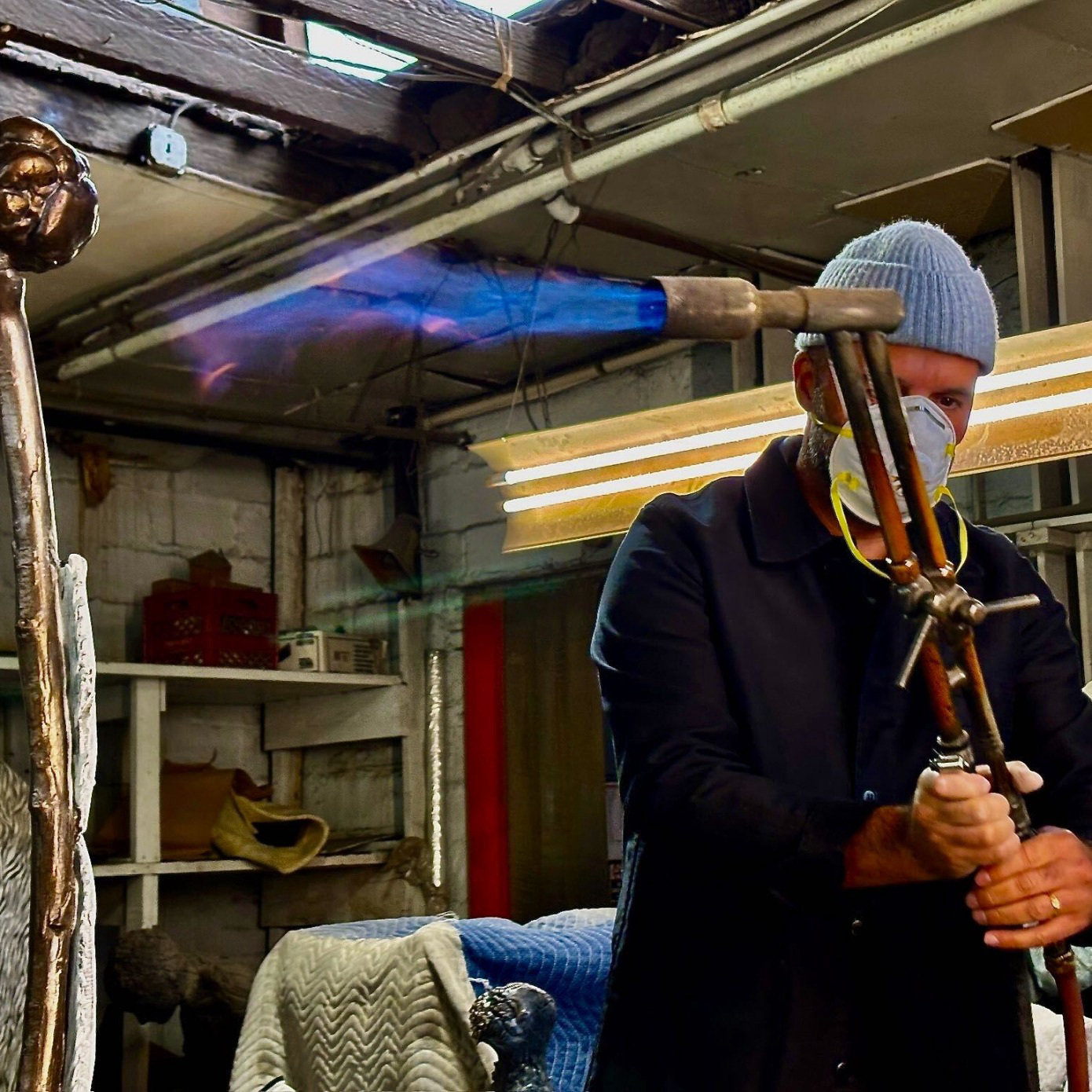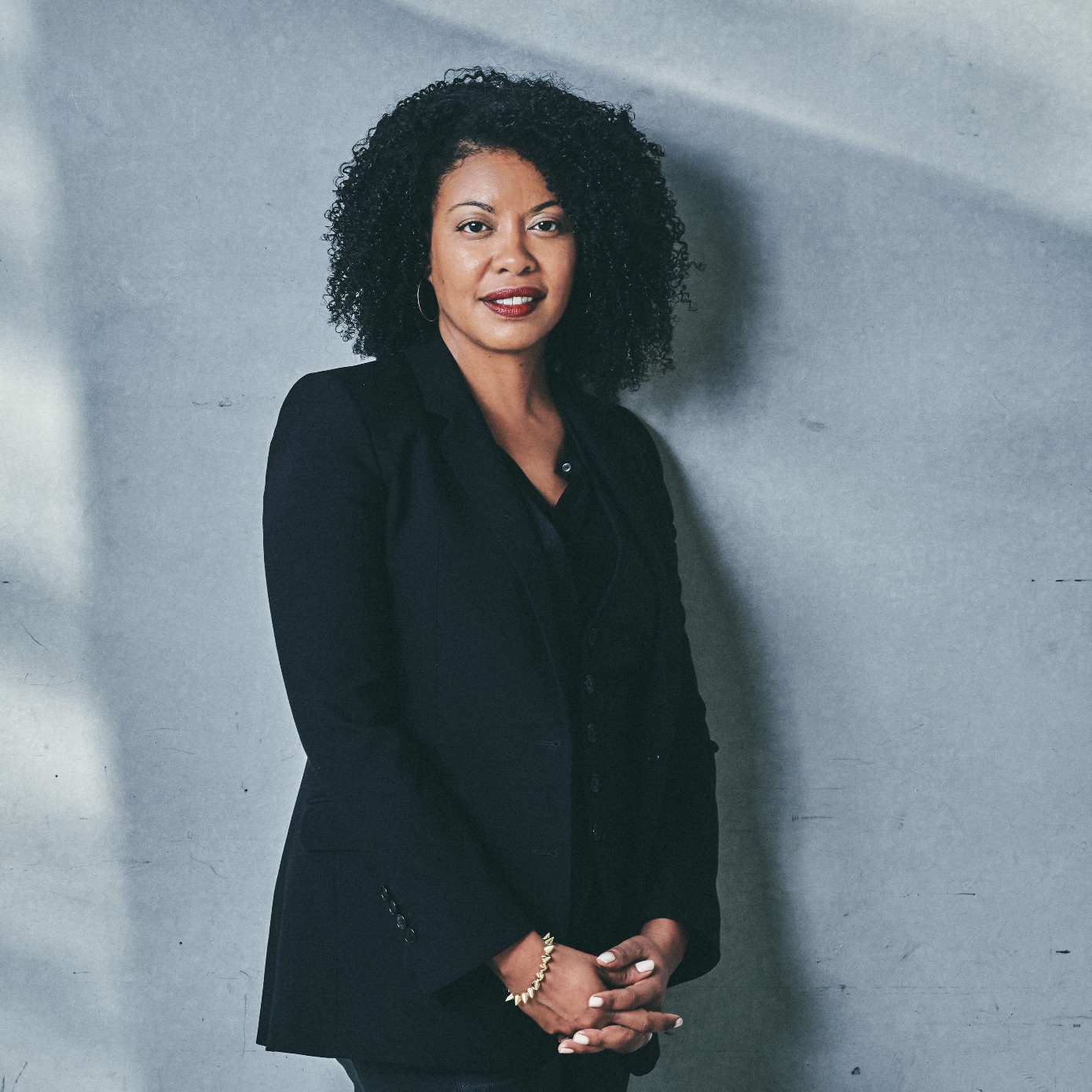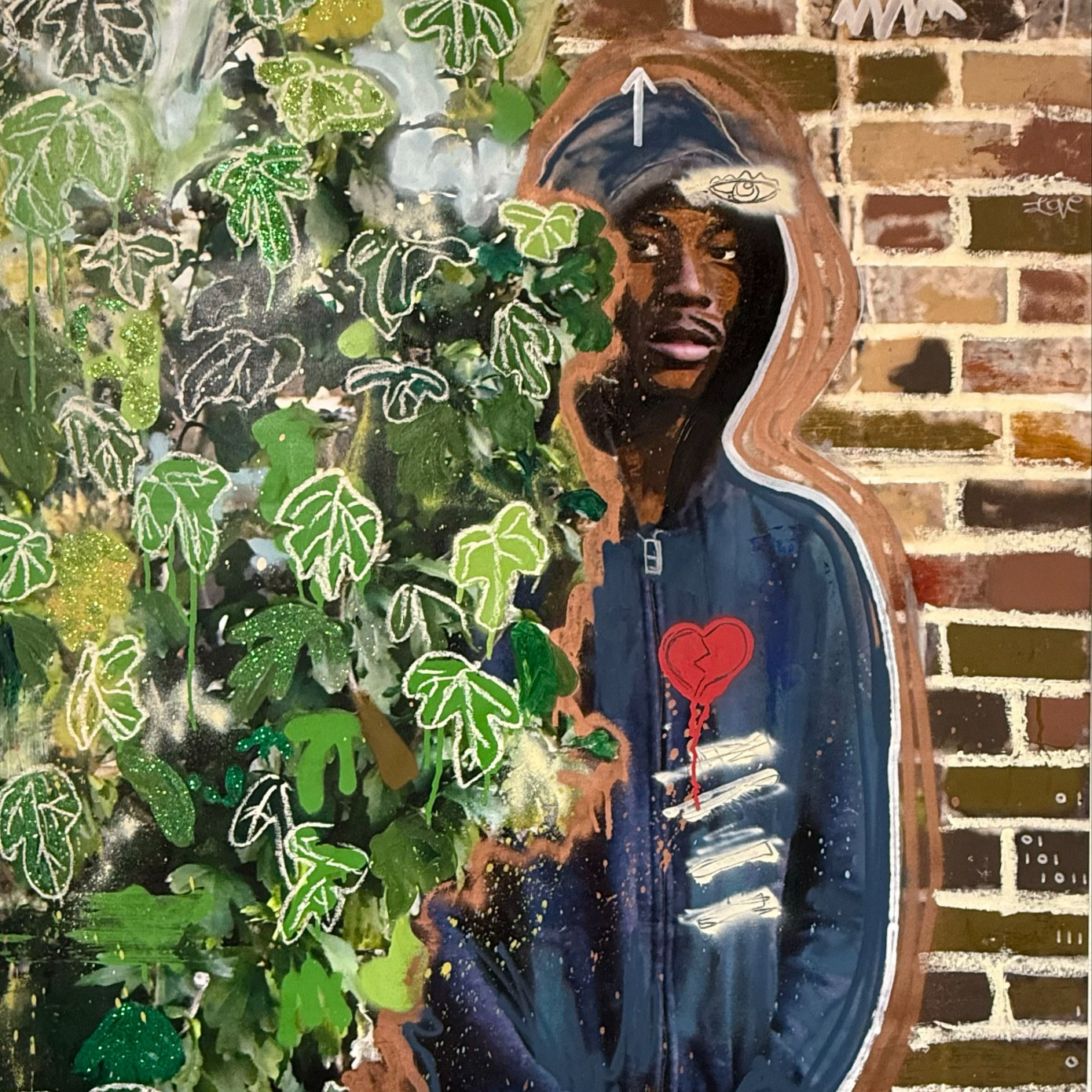
For 20 years, Chto Delat ("What is to be done?”) has been a leading voice in leftist activism in their home country of Russia, making work about art’s revolutionary potential to galvanize the public and activate political change amid persistent threats to freedom of expression. The collective was founded in 2003 by a working group of artists, writers, philosophers, and organizers from St. Petersburg and Moscow, and its work has been exhibited at institutions across the world, including the New Museum, the Centre Pompidou, and the Museo Universitario Arte Contemporáneo in Mexico City.
Chto Delat’s members—choreographer Nina Gasteva, artist and filmmaker Tsaplya Olga Egorova, writer and musician Nikolay Oleynikov, and artist and activist Dmitry Vilensky—produce video works, radio programs, publications, and public performance actions that center democracy, workers’ rights, and anti-fascism with the intention of suturing together art, activism, and theory. While the organization’s name references a 1902 political text by Vladimir Ilyich Lenin, it was primarily inspired by Nikolay Chernyshevsky’s 1863 novel of the same name, which Vilensky cites as a guide “for how to construct emancipatory collectives and make them sustainable within a hostile society.”
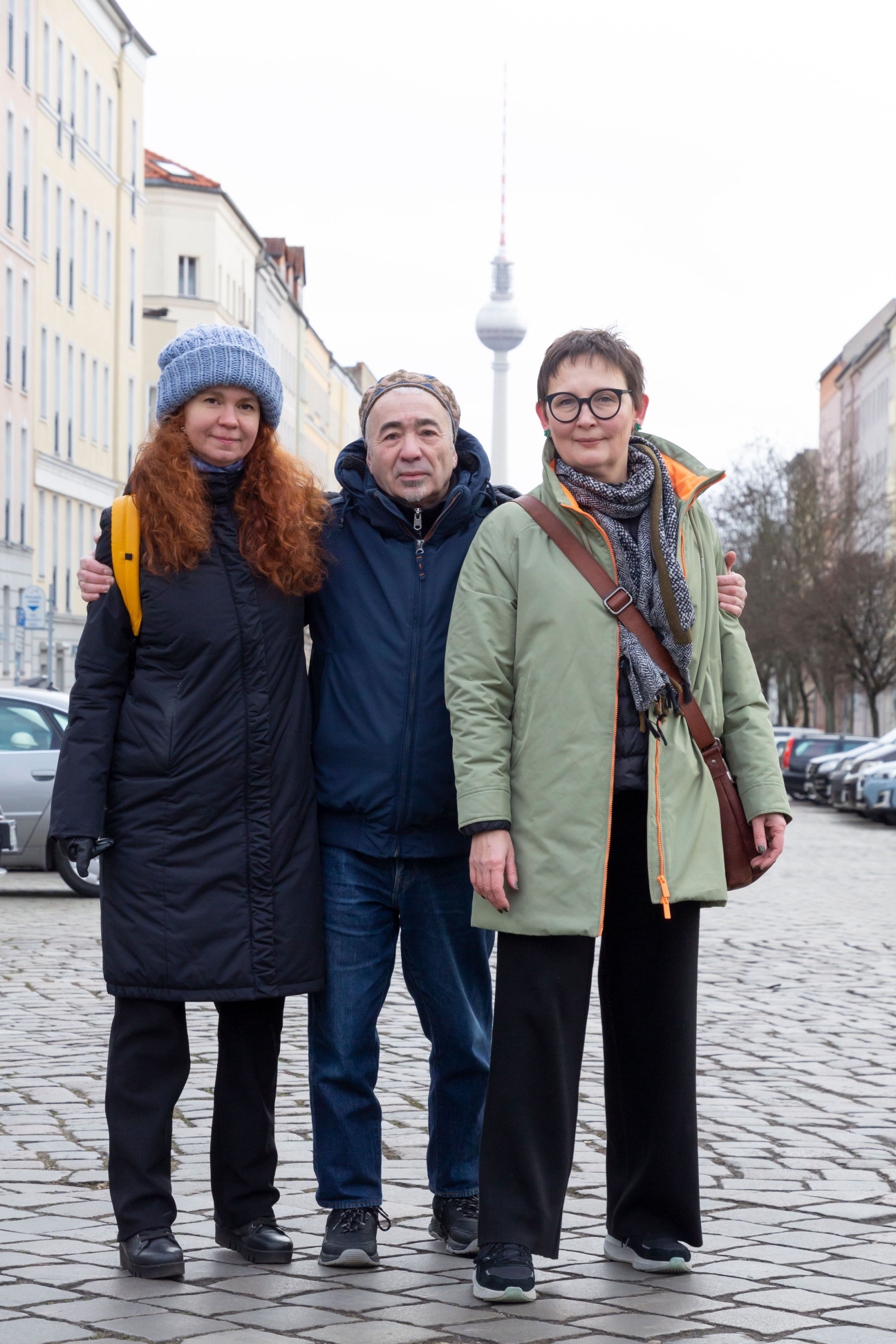
Stalled revolution is a recurring theme for the group—Chto Delat draws on Situationist theory to emphasize the ongoing possibility of self-actualization amid Russia’s tumultuous political shifts. In Chto Delat’s vision, art cannot be divorced from history or politics—rather, it is a tool to rectify narratives of oppression and give a voice to the marginalized. Its art-actions combine realist, surrealist, and absurdist elements with public spaces—city streets, university buildings—insisting that art’s role in society should not be confined to the gate-kept halls of the museum.
Its 2022 film installation, Canary Archives, expands on the metaphor of a canary in the coal mine (a warning sign to alert miners of danger) to underscore its members’ resistance to the military invasion of Ukraine. Among its nods to the Russian avant-garde, a modernist art movement that flourished after the Russian Revolutions of 1917, the collective publishes an English-Russian newspaper on issues central to Russian activist culture. The independent press uses manifestos, leaflets, and communiqués as tactics of democratic communication in an otherwise choked media environment.
In 2013, Chto Delat opened the School of Engaged Art in St. Petersburg, an incubator that invites newcomers to train in its philosophy through seminars and group work. The school became a flashpoint for Chto Delat in 2022, when accusations began to swirl that the collective was, in Vilensky’s words, “a training ground for young activists engaged in subversive anti-state activities.” Soon after, police searched the home he shared with Egorova, and confiscated computers, hard drives, and literature in anticipation of a criminal trial. Vilensky, Egorova, and Gasteva sought asylum in Germany, and now reside in Berlin.
For Vilensky, a key member of Chto Delat, groupwork is a way to resist “individualistic and selfish ideas of artistic genius.” Operating with a Creative Commons license, which allows for the free distribution and use of the group’s work, is a vital tenet of Chto Delat’s commitment to freely transmitting and sharing its message. “We advocate strongly for free access to our artistic production,” Egorova asserts.
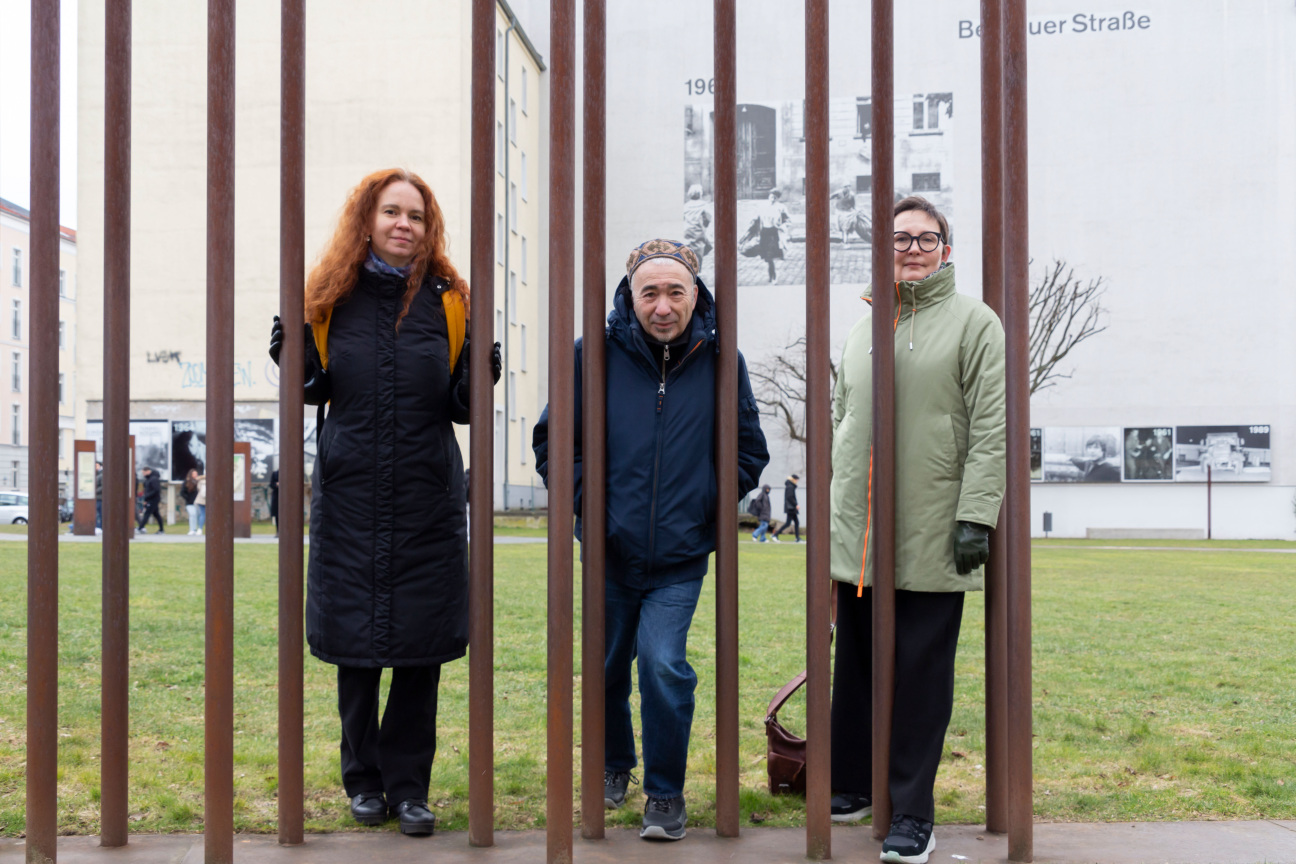
Making socially engaged art requires Chto Delat to function as a “democracy of initiatives.” Any three members can act under the collective’s name so long as the project is presented to the wider group first. “Everything happens through collective discussion and is based on trust,” Gasteva says. Together, members edit and revise their ideas, accepting disagreement as a part of the process. “Of course, we have conflicts,” says Vilensky, “and whoever has the most passion is the one that wins.”

